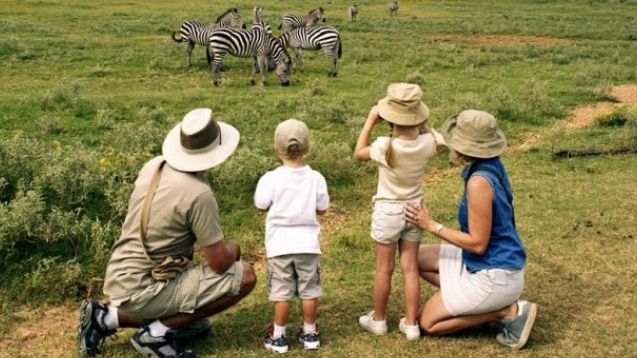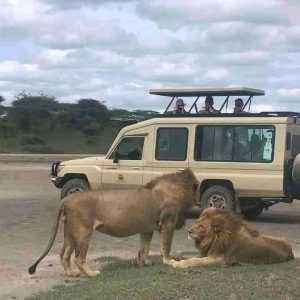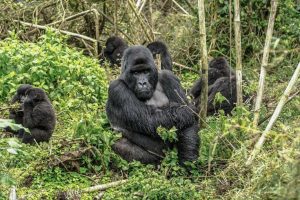A family safari in Rwanda and Uganda is more than just a vacation it’s a journey into the heart of Africa’s wild beauty and cultural richness. From gorilla trekking in misty forests to game drives on open savannahs, the experiences are diverse and unforgettable. But planning a successful safari for your family takes more than picking destinations on a map. It requires thoughtful consideration of safety, comfort, age-appropriate activities, travel logistics, and more. What to Consider When Choosing a Rwanda-Uganda Family Safari
In this detailed guide, we walk you through the most important things to consider when choosing a Rwanda-Uganda family safari to ensure that every moment of your journey is safe, meaningful, and enjoyable.
What Makes Rwanda and Uganda Unique Safari Destinations?
Rwanda and Uganda are neighbors, but each offers a different kind of adventure. Rwanda is compact, clean, and known for its efficient tourism infrastructure. It’s home to Volcanoes National Park, one of the best places in the world to see endangered mountain gorillas. Its capital city, Kigali, is welcoming and well-organized perfect for families arriving in Africa for the first time.
Uganda, on the other hand, is more extensive and varied in its landscapes. You’ll find lush forests, vast savannahs, and flowing rivers. It’s ideal for combining wildlife safaris, chimpanzee tracking, gorilla trekking, and even relaxing boat cruises. Together, Rwanda and Uganda create the perfect dual-country safari experience for families looking for variety, adventure, and connection with nature.
When Is the Best Time for a Family Safari in Rwanda and Uganda?
Timing is critical for a successful safari, especially when traveling with children. The best time to visit both countries is during the dry seasons, which are from June to September and December to February. During these months, weather conditions are stable, roads are more accessible, and wildlife is easier to spot due to thinning vegetation.
The wet seasons—from March to May and October to November—are less ideal for trekking and game drives due to muddy conditions. However, if your family prefers fewer crowds and lower prices, the rainy season can still be manageable with proper planning.
Which Safari Itinerary Works Best for Families?
When traveling with children, a well-balanced itinerary is essential. Long drives, back-to-back trekking days, and early mornings can be exhausting for younger family members. Choose a safari route that includes a mix of activities such as game drives, cultural visits, boat cruises, and light nature walks.
Start your safari with relaxed activities like a visit to Kigali city or a short drive through Akagera National Park in Rwanda. Then build up to more adventurous experiences such as gorilla or chimpanzee trekking. Spread out the major travel days and allow time for rest at comfortable lodges.
Are There Age Restrictions for Gorilla Trekking?
Yes, and this is one of the most important things to know. Gorilla trekking in both Rwanda and Uganda is limited to visitors aged 15 and above. This is a strict rule enforced by the national park authorities for safety and conservation reasons.
If your children are younger, consider alternative activities like golden monkey trekking (minimum age 12), cultural experiences, or guided nature walks. While one parent or older sibling treks gorillas, others can enjoy interactive and educational activities at nearby lodges or communities.
What Kind of Accommodations Are Suitable for Families?
Your accommodation can make or break your safari experience. Fortunately, both countries offer family-friendly lodges and tented camps that cater to parents traveling with kids.
Look for accommodations that offer:
- Family suites or interconnecting rooms
- Fenced and safe compounds
- Flexible meal times and kid-friendly menus
- Laundry services and child-friendly amenities
- On-site activities like nature walks, storytelling, or traditional music
Make sure the lodge is located close to your scheduled activities to minimize long travel times. Book well in advance, especially if traveling during peak season.
How Will You Travel Within and Between Rwanda and Uganda?
Traveling between safari destinations can be tiring for children, so it’s important to plan carefully. A private 4×4 vehicle with a dedicated guide is the best way to move around within each country. It gives your family the flexibility to stop, stretch, take photos, and enjoy the journey.
If you’re combining Rwanda and Uganda, you may cross by road via the Gatuna or Cyanika border posts, which are both family-friendly. In some cases, domestic flights are available to reduce travel time between distant parks like Entebbe and Bwindi.
Use a tour operator experienced in family safaris to help arrange logistics, border procedures, and permits in advance.
What Safari Activities Are Suitable for All Ages?
Not all safari experiences are physically demanding. Rwanda and Uganda offer many activities suitable for younger children and teens alike.
Examples of family-friendly safari experiences include:
- Game drives in Akagera, Murchison Falls, or Queen Elizabeth National Park
- Boat safaris on the Kazinga Channel or Lake Ihema
- Village visits to learn about traditional life
- Craft workshops and dance performances
- Birdwatching walks with a local guide
These options are not only fun but educational, encouraging your children to engage with nature and culture in meaningful ways.
What Health and Safety Measures Should You Prepare For?
Health and safety are paramount when traveling with your family in East Africa. Before departure, consult a travel doctor to ensure you receive all necessary vaccinations. Yellow Fever is mandatory for entry into both Rwanda and Uganda. Malaria prevention is also highly recommended.
Pack a basic medical kit with items like antiseptics, pain relievers, antihistamines, and rehydration salts. Reputable lodges have emergency procedures in place, but always verify their safety policies before booking.
Ensure your family is covered with comprehensive travel insurance, including emergency evacuation, medical treatment, and trip cancellations.
How Can You Ensure Your Trip is Culturally Respectful?
Traveling with children is a great opportunity to teach cultural sensitivity and global citizenship. Rwanda and Uganda have rich traditions and welcoming communities. Engaging respectfully with local people adds depth to your safari.
Participate in:
- Community visits led by local guides
- Village walks with storytelling
- Cooking sessions using local ingredients
- School visits with proper arrangements
- Shopping from local artisans and cooperatives
Always ask before taking photos, dress modestly, and encourage children to listen and learn. These interactions foster appreciation and empathy, enriching the overall travel experience.
What Role Does Responsible Tourism Play in Family Safaris?
Choosing responsible tourism options ensures that your visit contributes positively to local communities and conservation efforts. Many safari operators and lodges in Rwanda and Uganda are committed to sustainability.
Look for operators that:
- Hire local staff and guides
- Support conservation programs
- Follow ethical wildlife viewing practices
- Operate with eco-friendly policies
By supporting these businesses, your family contributes to protecting endangered wildlife, empowering communities, and preserving the natural beauty of these incredible countries for future generations.
How Can You Make Your Family Safari Truly Memorable?
The magic of a Rwanda-Uganda safari lies in shared moments—watching a herd of elephants cross your path, listening to birdsong at sunrise, or learning a traditional dance in a rural village.
To make your safari memorable:
- Keep the pace comfortable and flexible
- Involve your children in planning
- Include downtime for reflection and rest
- Keep a family travel journal or photo diary
- Focus on quality time, not quantity of activities
With thoughtful planning, your family will return home with more than souvenirs—you’ll have lasting memories, new perspectives, and a deeper bond.
Final Thoughts
Planning a family safari to Rwanda and Uganda is not a simple task, but it’s one of the most rewarding experiences you can offer your loved ones. With careful attention to health, logistics, activity balance, and responsible travel choices, your safari can be both safe and extraordinary.
These two countries offer a rare combination of wildlife, culture, and natural beauty in a region that remains welcoming and authentic. Whether you’re trekking gorillas, cruising rivers, or simply enjoying a sunset over the savannah, the shared experiences will become cherished memories.
If you are considering a Rwanda-Uganda family safari, now is the perfect time to begin planning. The journey of a lifetime starts with one decision—and that decision could be yours today.




